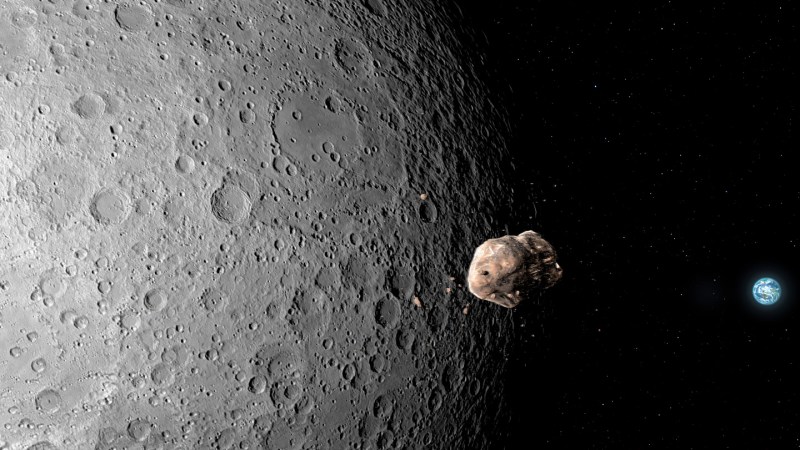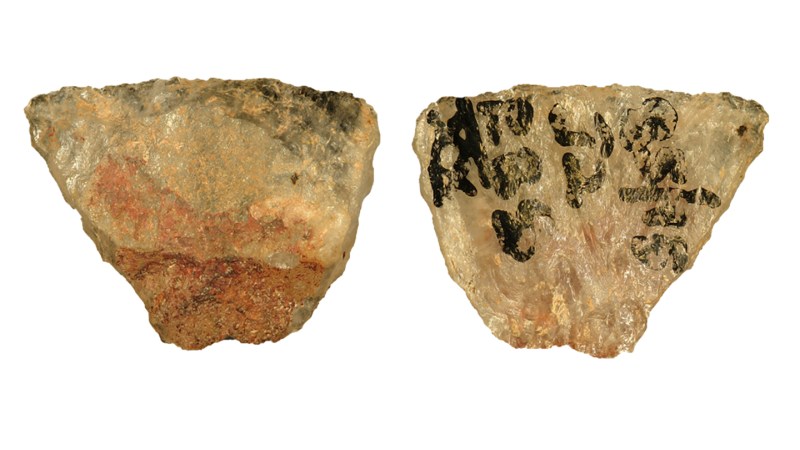A molecule produced by gut microbes may help spur heart disease
A leftover from microbes’ meals is linked to early heart disease in people. In mice, it contributed to plaque buildup in the arteries.

A leftover from microbes’ meals is linked to early coronary heart illness in other folks
The buildup of plaques in arterial walls, illustrated here, goes on for a while sooner than cardiovascular illness symptoms originate. Researchers chanced on a hyperlink between ranges of a small molecule produced by intestine microbes and early illness in other folks, suggesting it in most cases is a marker.
piyaset/Getty Photography
A small molecule left over after intestine microbes accumulate digesting your meal may one day present a brand new perspective for managing cardiovascular illness.
Certain intestine microbes damage down the amino acid histidine, regarded as one of the most constructing blocks of proteins, into a small molecule called imidazole propionate, or ImP. In a brand new peep published July 16 in Nature, researchers chanced on an association between elevated blood ranges of ImP and early cardiovascular illness. And in mice, the worldwide group of workers demonstrated how ImP contributes to the illness, opening up a potential therapeutic target.
The primary driver of cardiovascular illness is atherosclerosis, the buildup of fatty plaques in the arterial walls. “Should you specialise in atherosclerosis, customarily other folks issue ldl cholesterol, and indeed ldl cholesterol plays an especially well-known draw,” says Ina Nemet, whose work on the Cleveland Sanatorium Lerner Overview Institute specializes in the intestine microbiome and the plot in which it affects health and illness. Cholesterol is regarded as one of the predominant parts of those plaques, which, as they procure bigger, slim a vessel’s opening and decrease blood waft, main to symptoms equivalent to chest misfortune and shortness of breath. Statin medications, which lower ldl cholesterol, are a mainstay for the prevention and medication of cardiovascular illness.
But excessive ldl cholesterol and different identified cardiovascular possibility factors don’t demonstrate all instances of the illness. So researchers had been procuring for varied contributors, and “ImP may be regarded as one of those,” says Nemet, who used to be no longer excited about the brand new peep. ImP has previously been linked to diabetes and evolved cardiovascular illness. The Nature peep no longer handiest ties ImP to early illness in other folks, Nemet says, but additionally maps out in mice how ImP affects plaque formation and a formula to dam that impact.
The researchers assessed images of oldsters’s blood vessels to probe for those with early cardiovascular illness. Plaque buildup progresses silently for a while and is customarily chanced on handiest after symptoms assemble or a person has a coronary heart attack. In comparison with about 600 those that did no longer bear early illness, and controlling for factors equivalent to age and household ancient past, the roughly 1,600 with early illness had elevated ImP ranges.
The research group of workers chanced on that, in mice, ImP contributed to plaque formation by calling in immune cells, which provoke irritation and switch out to be a part of plaques. But ImP did no longer impact ranges of ldl cholesterol in the mice. The small molecule’s exercise “is all ldl cholesterol goal,” Nemet says. The researchers also identified a cellular protein, or receptor, that ImP binds to and confirmed that blockading this interaction may discontinuance the progression of plaques in mice.
“Whereas you perceive the receptor and the mechanism,” Nemet says, “that in fact opens new venues for medication.”
Earlier than ImP, different research had identified the chemical trimethylamine N-oxide, or TMAO, as a breakdown byproduct of intestine microbes that is affecting human health. TMAO occurs after a person eats meat or consumes energy drinks, and is also linked to a elevated possibility of cardiovascular illness.
More Tales from Science Records on Effectively being & Treatment
What's Your Reaction?




















































